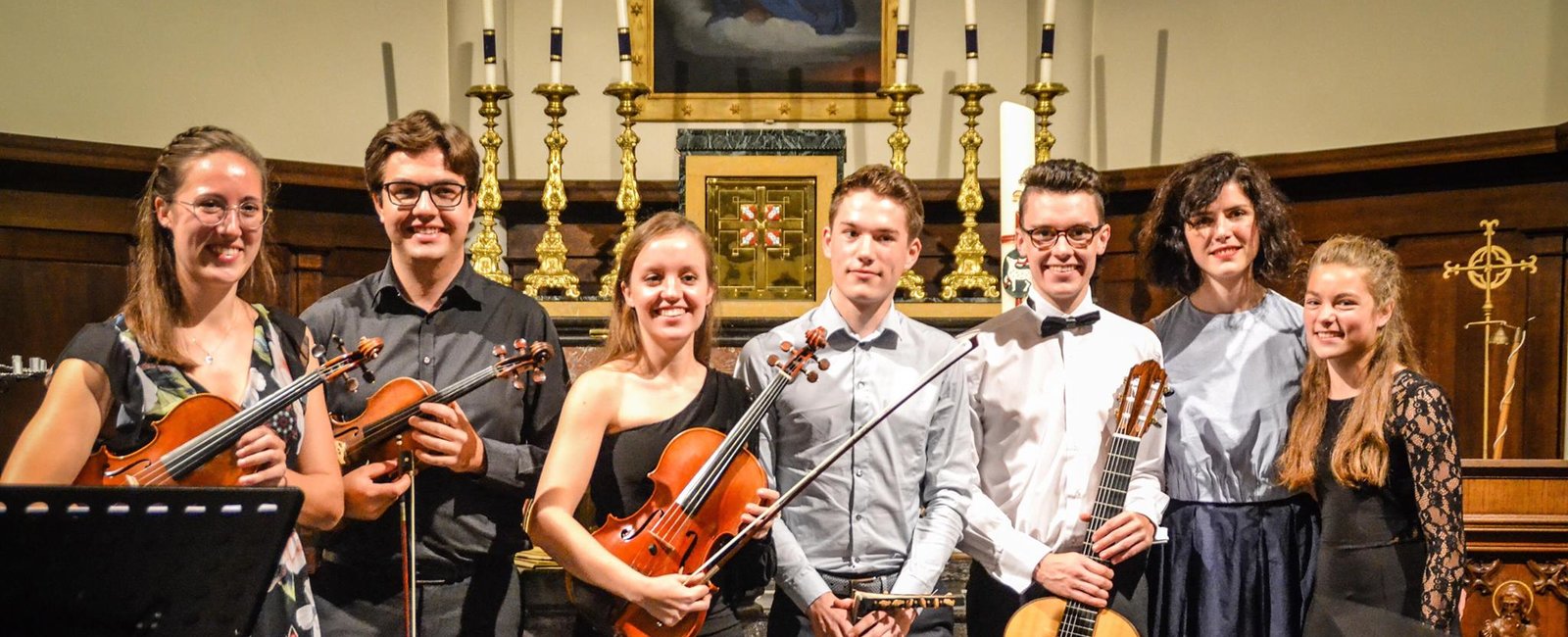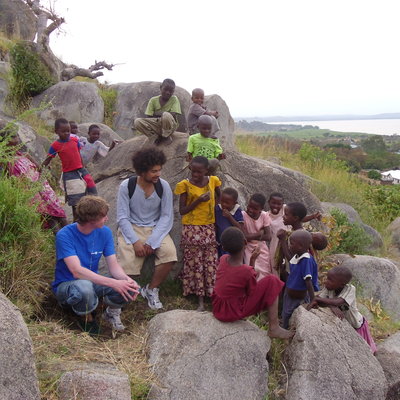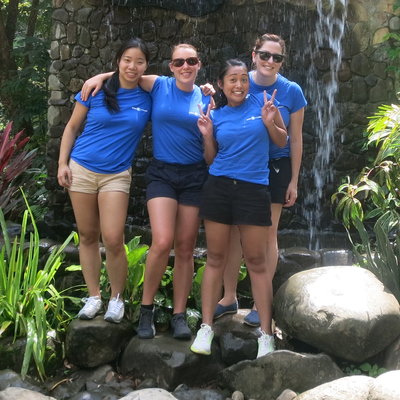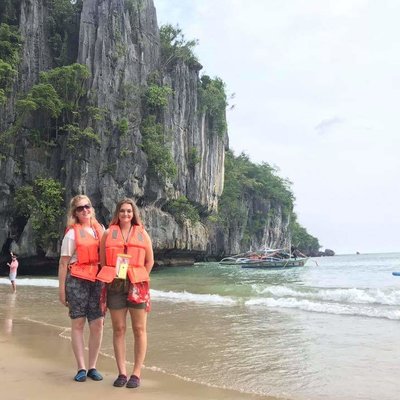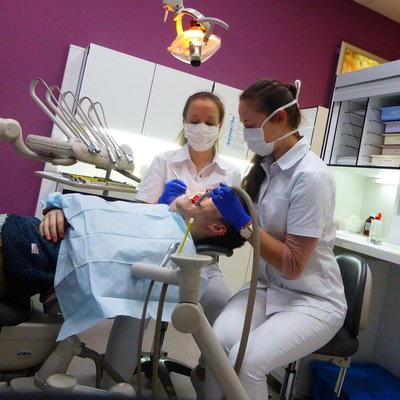 Getting experience as a dental student overseas was something I’d wanted to do for years. But as a dental student, it’s not easy to find opportunities like that. You can find things when you’re already a dentist, but there’s hardly anything for students.
Getting experience as a dental student overseas was something I’d wanted to do for years. But as a dental student, it’s not easy to find opportunities like that. You can find things when you’re already a dentist, but there’s hardly anything for students.
I went searching on the internet and actually found Work the World by accident. I have a friend who studies medicine, and he liked one of Work the World’s Facebook posts, so it was a happy coincidence. I asked my friend Evelien if she wanted to come with me and she said yes, so we did it together.
I really wanted to go to Africa because there is a great need for dental care. I’d also heard that Zambia was a really beautiful country, so I chose to travel to Lusaka. And it really lived up to my expectations - it was indeed beautiful, and I was able to help many patients.
Here's How we fundraised:
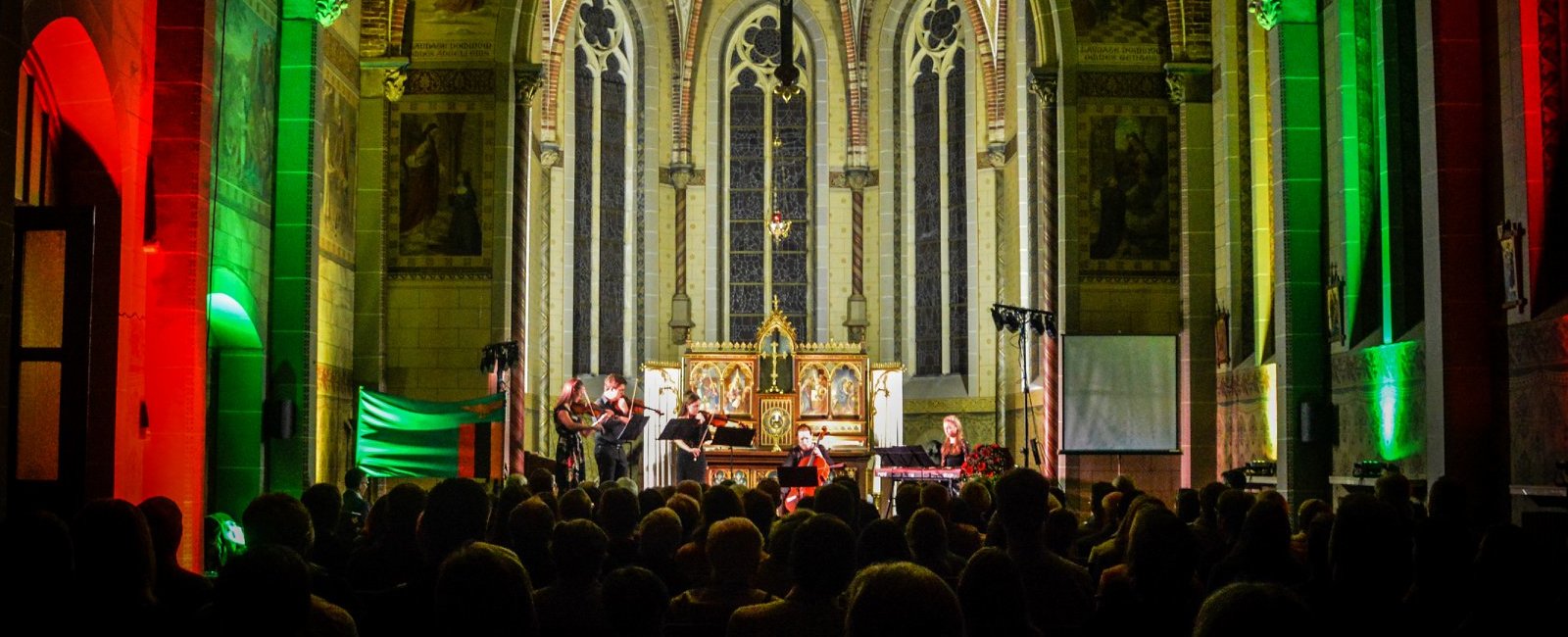 We decided to fundraise around two months after we’d decided to travel. We were thinking about doing something simple like selling cookies or having a spaghetti night (really common here in Belgium). But we decided that we wanted to be more original. We both play instruments, so we thought wouldn’t it be fun to give a concert.
We decided to fundraise around two months after we’d decided to travel. We were thinking about doing something simple like selling cookies or having a spaghetti night (really common here in Belgium). But we decided that we wanted to be more original. We both play instruments, so we thought wouldn’t it be fun to give a concert.
I play the viola and cello and have experience playing in a symphony orchestra, a string orchestra and a wind orchestra. Evelien plays the violin and the clarinet and also has experience playing in an orchestra. Our brothers study at a music conservatory, so we asked them to help with the concerts. My brother Cedric is a classical guitarist and Thomas plays the lute.
We are from two different regions in Belgium—I’m from the East and she’s from the West. And that meant we could give two concerts in two different cities. Then we had to think about where to host the concerts. We hosted one at a school near where I live. The concert itself was in their chapel, and then the reception was in the school dining hall. The second concert we held in the church near my friend’s house. The acoustics were amazing!
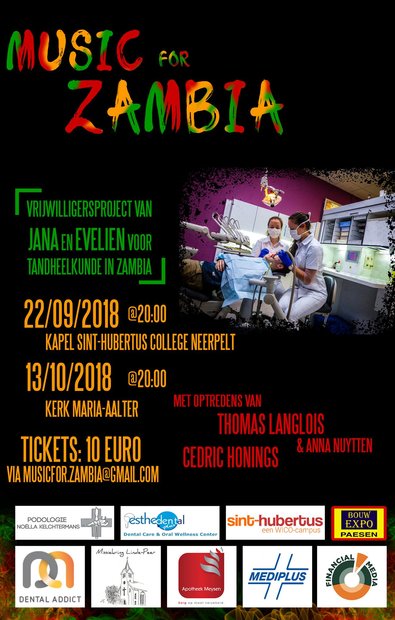 Then we had to think about how to let people know about it. So first we made a Facebook page and invited all of our friends. The page had all the information on it, about our trip to Zambia and about the fundraising itself. We also made some flyers and we left them all over the place—where we live, where we study…. We also sent some emails out to friends who were living further away. We did lots of things like that. We even sent emails to companies to see if they’d sponsor us. And we actually managed to get funding from some of those companies.
Then we had to think about how to let people know about it. So first we made a Facebook page and invited all of our friends. The page had all the information on it, about our trip to Zambia and about the fundraising itself. We also made some flyers and we left them all over the place—where we live, where we study…. We also sent some emails out to friends who were living further away. We did lots of things like that. We even sent emails to companies to see if they’d sponsor us. And we actually managed to get funding from some of those companies.
We spoke to some companies who produce dental equipment, and dental practice groups, and they gave us some equipment to donate to our placement hospital in Zambia. We even got some money from a construction company (they sponsored me because they happened to be from the city I’m from). We were surprised by how many answers we got.
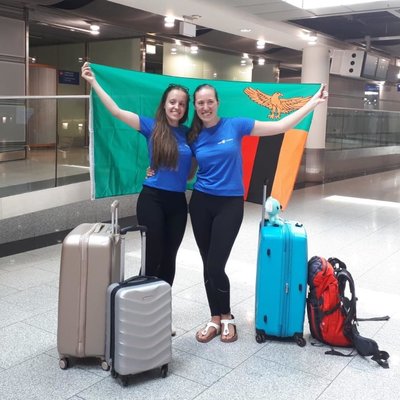 We opened a bank account, especially for donations, so people could pay money straight into the account. The bank even sponsored us, letting us open the account for free. In the end, we got around 250 people attending the two concerts! Adding the proceeds from the concerts and the company sponsorships, we were able to pay off around three-quarters of the total cost of our placement.
We opened a bank account, especially for donations, so people could pay money straight into the account. The bank even sponsored us, letting us open the account for free. In the end, we got around 250 people attending the two concerts! Adding the proceeds from the concerts and the company sponsorships, we were able to pay off around three-quarters of the total cost of our placement.
If you’re thinking about fundraising, just make whatever you’re doing as public as possible. Use every channel you can to get the message out there. There will be people interested in what you’re doing. Just try it and make sure you think big! We came from the idea of selling cookies and having a spaghetti night to putting on two concerts for 250 people.
My clinical experience:
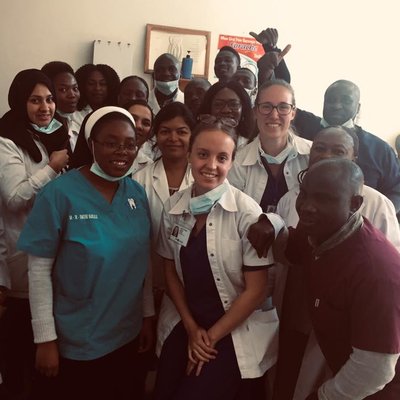 This was my first trip to the African continent. We had stopped over in Dubai on our way, and the airport there is incredibly modern, so it was an even bigger contrast getting off the plane in Lusaka and seeing only one gate! The first people we interacted with were the Work the World staff. They were really smiley and enthusiastic. It was reassuring—I’d only travelled with big groups or with family before.
This was my first trip to the African continent. We had stopped over in Dubai on our way, and the airport there is incredibly modern, so it was an even bigger contrast getting off the plane in Lusaka and seeing only one gate! The first people we interacted with were the Work the World staff. They were really smiley and enthusiastic. It was reassuring—I’d only travelled with big groups or with family before.
The hospital was really busy. We were examining patients on dental chairs, but there were also patients on normal chairs, and patients standing, and sitting on the floor. I think it was the first day back after a four-day public holiday so it was even busier than it would have been.
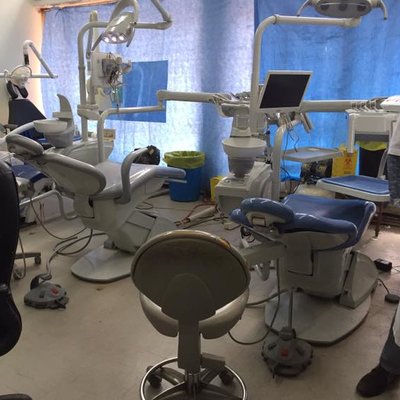 The biggest difference between dentistry in Belgium and Zambia was the lack of equipment. They had hardly any equipment to do preventative and restorative dentistry, so they often choose to remove the tooth to avoid it causing worse problems further down the line.
The biggest difference between dentistry in Belgium and Zambia was the lack of equipment. They had hardly any equipment to do preventative and restorative dentistry, so they often choose to remove the tooth to avoid it causing worse problems further down the line.
Local dentists used a lot of antibiotics too. They gave most patients antibiotics, which we only really used sparingly and only then in particular cases. I did a root canal on a patient’s canine tooth, which has the longest root of all our teeth. We use little files to make the root clean, but the department’s files were too short. I had to improvise.
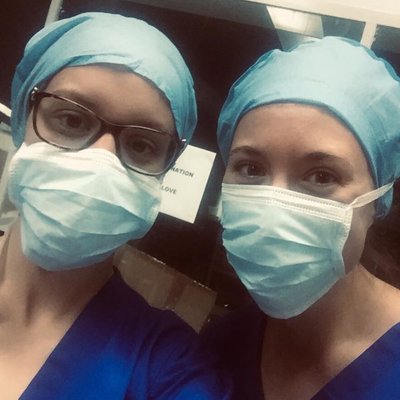 I ended up taking off the handle of the file so I could get it in deeper to reach the end of the root. We also used burs, but the water wasn’t working. We had to use little syringes full of water to get a similar effect. The root canal was successful.
I ended up taking off the handle of the file so I could get it in deeper to reach the end of the root. We also used burs, but the water wasn’t working. We had to use little syringes full of water to get a similar effect. The root canal was successful.
There were lots of different improvisations like this during my placement. And the experience made me realise how lucky we are in Belgium to have what we have. I learned a lot by doing treatments with limited materials.
If you’re going on an overseas placement, make sure you see and do everything you can—time flies while you’re over there, so plan from the beginning what you want to see and what you want to do. My time helping as a dental student overseas brought me a wealth of experiences on many levels.
My final piece of advice is to just go for it!
